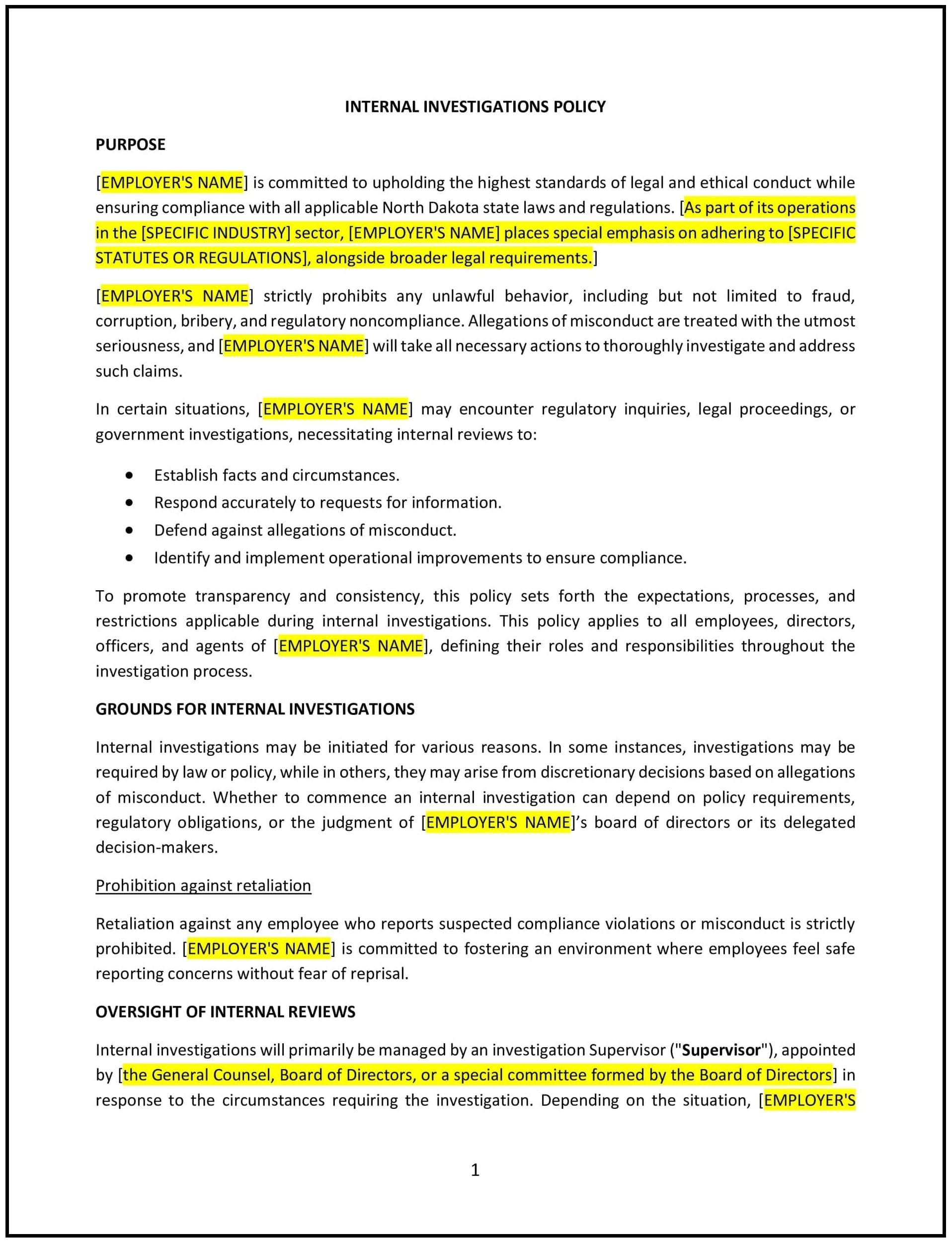Internal investigations policy (North Dakota): Free template
Got contracts to review? While you're here for policies, let Cobrief make contract review effortless—start your free review now.

Customize this template for free
Internal investigations policy (North Dakota)
This internal investigations policy is designed to help North Dakota businesses establish procedures for conducting workplace investigations related to misconduct, policy violations, or legal concerns. The policy outlines investigation steps, confidentiality requirements, and resolution procedures.
By implementing this policy, businesses can ensure fair, thorough, and legally sound investigations.
How to use this internal investigations policy (North Dakota)
- Define investigation scope: Specify the types of incidents that warrant internal investigations.
- Establish reporting procedures: Set up confidential reporting channels for employees.
- Outline investigator roles: Assign trained personnel or external experts to handle investigations.
- Require confidentiality: Mandate discretion to protect involved parties.
- Set evidence-gathering guidelines: Establish protocols for collecting and reviewing relevant information.
- Determine disciplinary actions: Define consequences for confirmed policy violations.
- Review regularly: Update the policy based on legal changes and organizational needs.
Benefits of using this internal investigations policy (North Dakota)
Implementing this policy provides several advantages for North Dakota businesses:
- Promotes fairness and accountability: Ensures consistent handling of workplace issues.
- Reduces legal risks: Helps businesses manage complaints in compliance with employment laws.
- Enhances workplace trust: Encourages employees to report concerns without fear of retaliation.
- Provides structured investigation procedures: Standardizes case management and resolution.
- Reflects North Dakota-specific considerations: Addresses legal and regulatory requirements for workplace investigations.
Tips for using this internal investigations policy (North Dakota)
- Maintain neutrality: Ensure investigators remain unbiased throughout the process.
- Document all findings: Keep detailed records of investigation steps and outcomes.
- Communicate investigation results appropriately: Share findings with necessary stakeholders.
- Train HR and leadership on investigation procedures: Enhance consistency in case handling.
- Adjust as needed: Update policies based on emerging workplace issues.